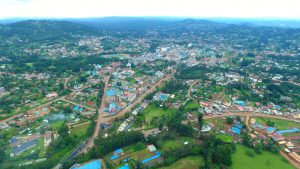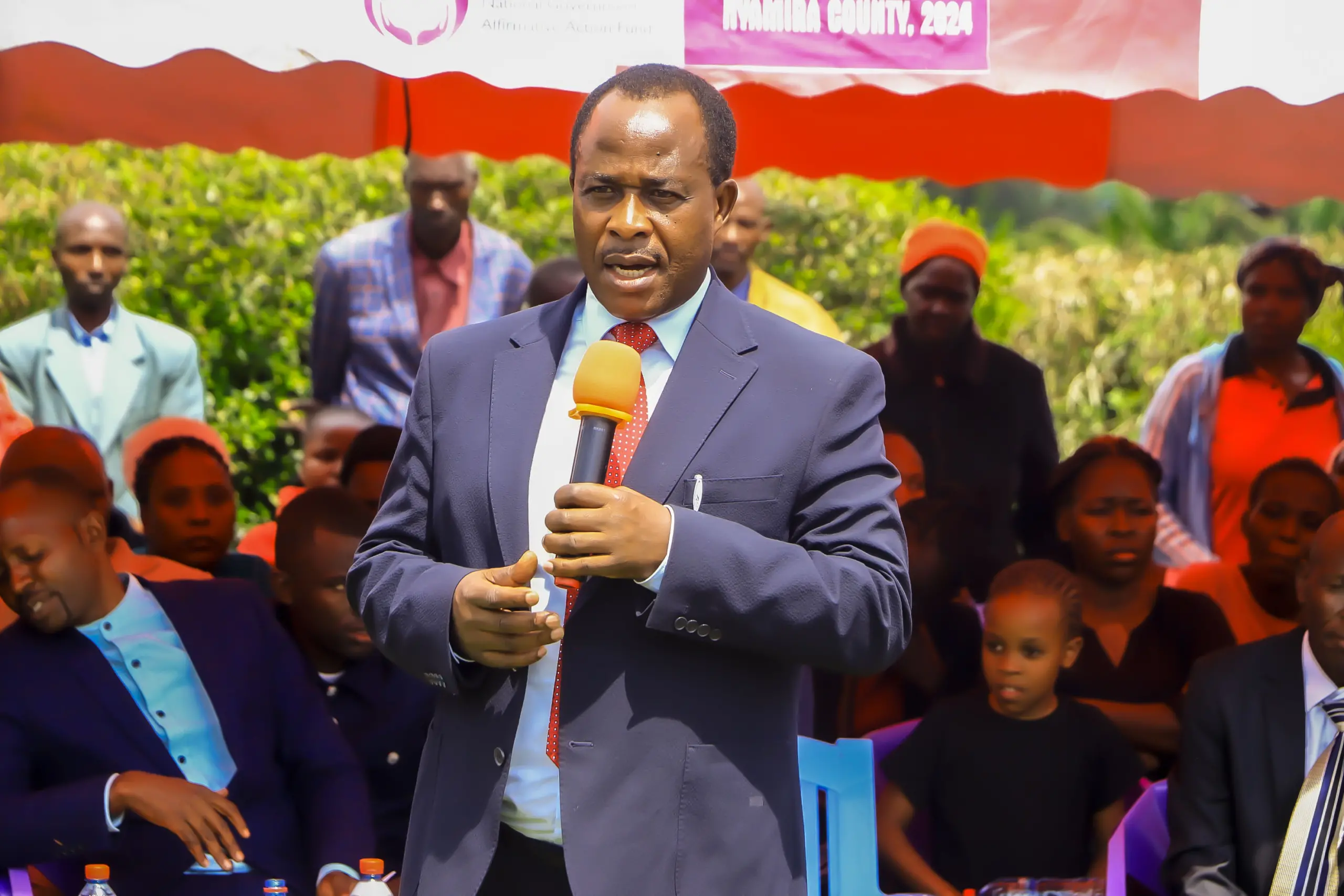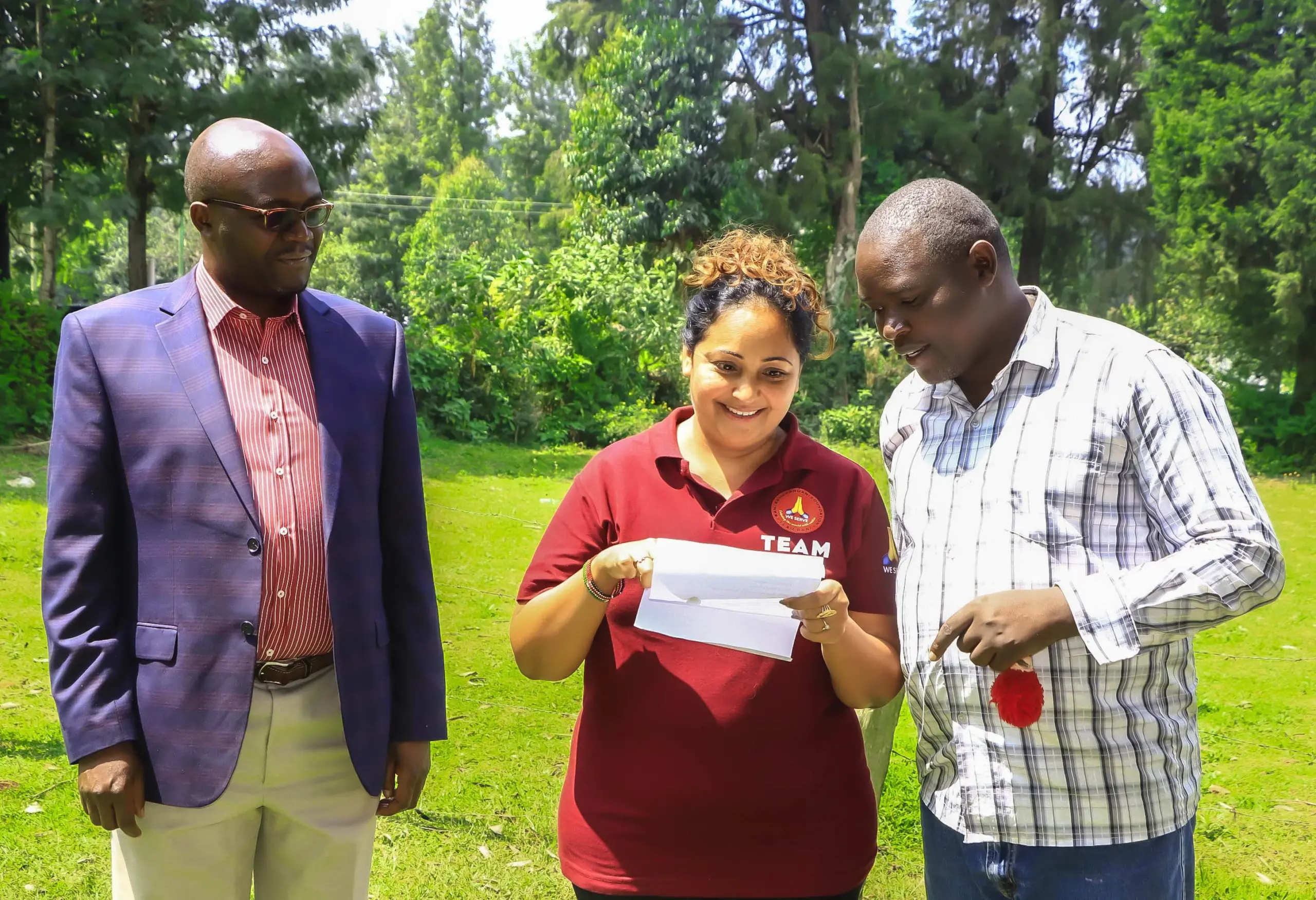
Steve Mokaya
Until about six years ago, the Nyankongo area conspicuously stood out as one of the most reserve areas adjacent to Kisii Municipality, despite being just a kilometre away from the town.
The rise of the once trodden down and disdained area is akin to the practical but rare cases of a spoilt character turned a darling of many.
Things are changing fast, so fast that the momentum sends shocks of joy down the spines of the county minister for urban development. The area is now literally the hottest cake, as it has stamped authority as the newest, rapidly growing peri-urban of Kisii town. Land rates have already hit a record high of an average of 6 million an acre. They are still rising, residents will tell you. The country minister agrees that already the land has turned “very scarce”, thanks to its very high demand.
Modern buildings are springing up, adding colour and variety to Kisii’s skyline. Modern hotels and resorts have also been set up in the area, opening the area to visitors. The Makutano-Getare road runs through the area, giving motorists a shorter route to access Kisii town from Kisii-Nyamira highway. Street lights cap it up, as though to amplify the light that has finally dawned on the area. Children play and chatter from the new residential houses that punctuate the area.
But this is not how things were in the not-so-long-ago past. Aliens and original dwellers don’t shy away from mentioning the strongest of bad adjectives as they recount the past of the area. Vehicles, motorbike taxis and even pedestrians used to give the area a wide berth, owing to the social ills that were rampant there.
Isabella Misati moved into the place more than a decade ago. She says that the move was a hard one to do, but they braced the then challenges and settled in. Looking back and now, she describes the transformation as “surprising”.
“I came here with my family back then when the area was so unappealing. It was a famous chang’aa and busaa den. The crime rates were so rampant that sungusungu, an outlawed local vigilante group, took power upon themselves and started to punish the criminals who were giving us sleepless nights,” she said.
“There were churches and cheap immorality was the order of the day. People used to retire to their houses so early to avoid running into the criminals,” she added.
She, nonetheless, bought a sizable piece of land, where she set up a massive residential house project. She says that that was done out of faith.
“Nobody would think then that people would scramble for houses here ten years later but I somehow knew it would happen. I’m glad I’ve lived to witness my act of faith fulfilled,” she said.
Her project is yet to be completed but already has attracted residents. The complete units have tenants. She attributes her project’s delay to a lack of enough finances. Notwithstanding, she still soldiers on. Her houses are of one and two bedrooms, only designed for families. She says that she doesn’t want to host students as they have a bad reputation for not paying rent, among other things.
For Lawrence Ombasa, an engineer who owns a construction company, the area can only do better and better, saying where it has come from is just too difficult to comprehend. He has been instrumental in putting up many construction projects in the area, ever since he moved from Mombasa in 2005.
However, he says that like Isabella, he had to brave the challenges that were stacked against him. He remembers an incident, which he described as “initiation” into the area.
“When I moved from Mombasa in 2005, I was given a project to do. I was constructing a massive pioneer building here. We brought all the construction materials to the site ready to start the work soon after. We were shocked the following day when we went to the location and found nothing. All the items, including bricks, had been stolen overnight. That was a blow to the project because it stalled the process for so long,” he said.
Lawrence is now a happy man, having established a reputation as a successful contractor in the area and other areas in Kisii town. If the speed at which the development of the area is growing is not disturbed, Nyankongo estate will overtake the traditional residential giants such as Nyanchwa and Mwembe, he said.
He says that the county government and the National Construction Authority (NCA) have played a big role in the growth of Nyankongo.
“The county officials and the NCA visit every construction project for supervision. These buildings you see here stand strong because they follow the laid down rules. Otherwise, with this development rush, crooked individuals can put up substandard buildings which might result in accidents,” he said.
Most people who want to live in town prefer Nyankongo to other parts, due to improved infrastructure and affordable houses, William Mose says. He owns a chain of rental houses and other businesses.
“The most expensive house in this area goes for about Sh 12 000, but most cost Sh 8 000. Bedsitters are even cheaper, at Sh5 000,” he said.
William, 62, was born and raised in the area. He is one of the few remaining original inhabitants of the area. Most of the people who originally lived here have moved elsewhere, he said.
“You know most of them were drunkards. So they easily sold out their lands. Others sold to raise school fees to educate their children,” he offered.
However, Dr Walter Okibo, Kisii County’s minister for physical planning and urban development disagrees with him. Dr Okibo says that had the original dwellers not sold out their land, the area could not have realised growth.
“These people got information and they acted accordingly. In addition, generally, the area of Nyankongo had most people from the Kitutu clan. Abagetutu tend to welcome foreigners and sell their land, unlike some people like those of the Nyaribari clan, who are more reserved,” he said.

He added that even those who sold out their land to educate their children can now enjoy the benefits of the area’s growth, as their children have more job opportunities and enjoy the social amenities and services which are now closer home.
William is currently setting up a car wash adjacent to the main road that cuts through the area, saying that there is a big demand for such a facility.
“The town centre is already too congested to have enough of these services offered there. Again, with this road, so many vehicles ply this route in addition to the cars owned by the residents. There is definitely a big need for a car wash. We are also in need of a petrol station and a supermarket. People can’t be going to town every day to seek such services,” he said.
Dr Okibo, says that governor Ongwae’s government was the biggest catalyst for the rise of the area.
“Before the county government came, the area was a bit too reserved. In comparison with other gateways to Kisii town such as Kisumu, Kilgoris, Keroka and Oyugis, the Nyamira road came a bit too late, thus delaying development in that area,” he said.
“So when the county government realised that Kisii East side had great growth potential, the county government constructed the Makutano-Getare road, which cuts across the Nyankongo estate.
The road opened up the area as it now served as a bypass for vehicles coming from and going to Nyamira,” he said.
He said that due to lack of enough land for roads coupled with the increasing population, there is a road problem, especially in the residential areas of the estate.
“The feeder roads in the area are too narrow to allow vehicles to criss-cross or even overtake each other. A standard feeder road should be between twelve and fourteen feet, but you find that those in Nyakongo are between eight and twelve. So I foresee a situation where we will have single routes for the feeder roads. We will have different entry and exit roads, to address the road problem,” he said.
Due to the sensitivity of land in the area, he said that his ministry is working with the lands department to ensure proper procedure is followed when purchasing land, to avoid a scenario where multiple people purchase the same piece of land.
He, however, assured investors and developers that his ministry will not frustrate their efforts to invest in the area, saying that they will clear them within two weeks, as long as everything is well.
Dr Okibo said that as a result of the growth of the area, it might be difficult to clearly define the boundaries of Nyamira and Kisii Counties.
“This growth is likely to expand to the Getare area, which is the border of the two counties. But all that is growth and development, which is good for our people,” he said.
He said that the county government has laid down the urban strategic plan to transform the municipality into a city in fifteen years.



